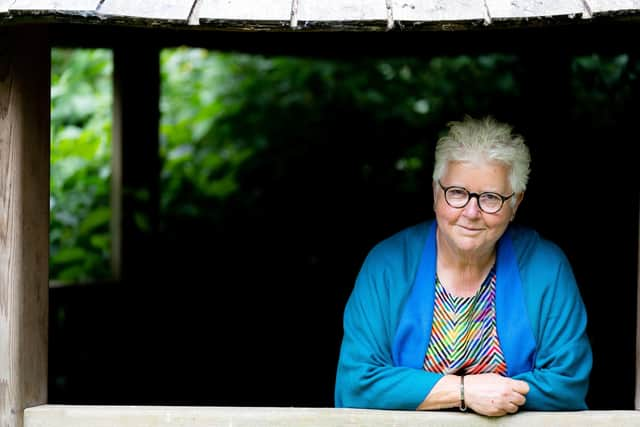Arts review of 2023: Allan Massie on the year in books
Rather to my surprise, some of the books I have most enjoyed and admired this year (not always the same thing) have been exceptionally long. There was JK Rowling’s / Robert Galbraith’s latest crime novel, The Running Grave, featuring a chilling cult, anchored to ordinary life by the routine work of the Strike detective agency. All very enjoyable, two days solid armchair reading. The same may be said of Nicholas Shakespeare’s biography of Ian Fleming, a fascinating work that goes back before Bond and shows Fleming to have been a more interesting and more troubled man that I had supposed.
There were two exceptional royal biographies: first Hunting the Falcon, a life of Anne Boleyn by John Guy and Julia Fox, sympathetic to Anne, revealing Henry VIII as utterly repulsive; the second, The Wisest Fool, a life of James VI & I by Steven Veerapen, which shows him to be the most successful of the Stuart kings, capable, witty and humorous.
Advertisement
Hide AdTwo other outstanding non-fiction books were Tom Holland’s Pax, a study of the High Noon of the Roman Empire, and Soldiers Don’t Go Mad by Charles Glass, a remarkable book which combines the horrors of First World War with an account of the treatment of shell-shocked officers at Craiglockhart Hospital, the most famous patients there being the poets Siegfried Sassoon and Wilfred Owen.


Speaking of war, Alistair Moffat’s War Paths explored campaigns and battlefields here in Scotland, mostly in the Highlands. Writers are not sedentary all the time; readers needn’t be either. Then there was Carl MacDougal’s richly detailed memoir of childhood in the 1940s and 50s, sadly appearing only after his death. This is also the case with Edward J Cowan’s masterly Northern Lights, subtitled “The Arctic Scots”, a book to remind you that there are places with much worse weather than a Scottish winter can offer. Orwell’s Island by Len Wilson examined the writing of Nineteen Eighty-Four, Wilson happy to find that experience of life on Jura also corrected Orwell’s dislike and resentment of Scots and Scotland. Meanwhile for fireside reading, a book to dip in and out of, I suggest James Campbell’s NB, a selection of his columns for the TLS over half a lifetime.
It hasn’t to my mind been a great year for fiction. Still, some good novels came my way. First there was The Caretaker by Ron Rash. I have previously named him as my favourite living American novelist, so Canongate’s Jamie Byng sent me a proof. I read it and admired it, and read the finished copy a month or two later and enjoyed it even more. Rash never shows off, never blusters; he sees life as it is, imagines how others feel, and tells us how it is. Lovely stuff.
In contrast, Sebastian Faulks has long been a novelist much occupied with ideas, especially scientific and medical ones, while contriving to marry this to a strong plot and credible characters The Seventh Son, story of deceit in the cause of scientific progress was gripping, horribly persuasive and sad. There was more lovely stuff from John Banville, too. The Lock Up is a gem, with one scene between a bishop and a policeman that has the authentic touch of the master.
David Greig, better known as a dramatist, explored the clash of early Christianity and Norse paganism, in a short novel titled Columba’s Bones, which contrived to be brutal, funny and moving, an interesting mix. Ron Butlin, poet and man of letters, returned to fiction with a short novel with a long title. So Many Lives and All of Them Are Yours is boisterous, funny, often improbable, but pleasing. Electricity by Angus Peter Campbell is a fine novel of island life exposed to modernity and changed by it. The Old Haunts by Allan Radcliffe is, like so much Scottish fiction over the years, a reflection on childhood, adolescence, breaking free and still being held by a tether. Finally, Val McDermid’s Past Lying, a crime novel set in the days of Covid, is a work of exemplary professionalism, making an absurdly unlikely murder all but credible.